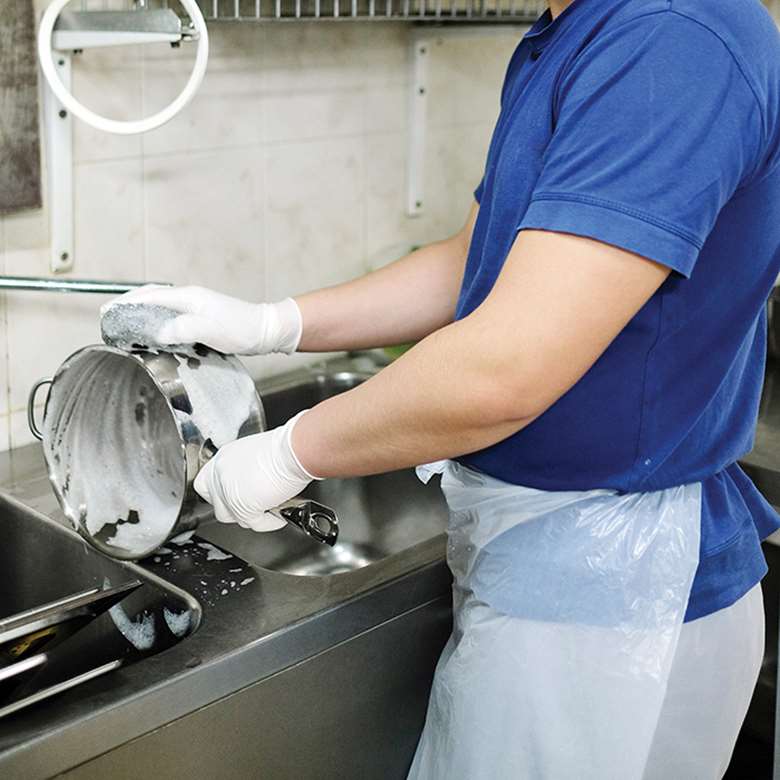Bristol Reparation Service
Emily Rogers
Tuesday, September 26, 2017
Project run by Catch 22 for Bristol Youth Offending Team (YOT) enables young offenders to make amends through community service, while being worked with restoratively.

Participants spend five to 20 hours of reparation at a community project, or complete 40-plus hours of unpaid work, while reflecting on the behaviour.
Around three quarters say the project has stopped them offending further.
ACTION
The Bristol Reparation Service, which started in July 2014, is one of two reparation services run by Catch 22 for youth offending teams in Suffolk and Bristol. Reparation co-ordinator Hannah Franklin describes it as "community service, underpinned with restorative principles". She explains: "Young people make amends by paying back to the community. It also gives them a sense of belonging and vested interest in their community, rather than isolating them further, and it allows time for reflection."
Children aged 10 to 18 are referred after their first offence, such as criminal damage or petty theft, but can also be re-referred. Reparation hours are generally ordered by a court, and may also result from an out-of-court disposal by police. Bristol YOT asks the victim if he or she would like direct or indirect reparation, and if indirect reparation is chosen, or if it is a victimless crime such as drug or weapon possession, a YOT-led panel decides on the number of hours. Panel members, including the victim and representatives from the community and police, consider factors such as the impact and seriousness of the crime and the young person's offending history, capabilities and involvement in education, employment and training. They usually decide on undertaking between five and 20 hours of community reparation, although another option is at least 40 hours of unpaid work.
Franklin receives the referral, with key information about the young person, including any risks. "If they have a history of mental health problems leading to violence, we wouldn't put them in a project with the public," she explains. Through the participant's YOT caseworker, Franklin arranges a meeting with him or her. After an initial assessment, she outlines the programme's aims, then helps the young person choose a community project to participate in, based on their availability and interests. The participant signs a reparation agreement, outlining expected behaviour such as respectfulness, attendance and punctuality. If they miss three sessions, it is considered a breach of their order, and their case is referred back to the panel or court.
Catch 22 has helped the service establish links with projects including a volunteer-run homeless shelter, which participants help clean. Franklin says it has a powerful impact on participants, recalling one working "so hard" there, after seeing the difference it made. "He said he wanted a job because he didn't want a homelessness shelter as his only option," she recalls. Other projects include a community cafe serving free or subsidised food; a bike project involving participants stripping and rebuilding donated bikes for resale; and a project providing house repairs and garden maintenance for older people. "These projects both benefit the community and teach new skills," Franklin explains. "So it's not just reparation, it's also about building young people's skills, so they've got something to move forward with."
Franklin allocates a session worker to each young person, who accompanies one or two participants to the project for the five-hour day, working alongside them. Franklin says this facilitates relationship-building, helping the restorative process by enabling participants to reflect and take responsibility. "They'll discuss how they think their offence has affected the victim, themselves and their own family," she explains. "They'll usually talk about why they committed it, what they want to do for the future and the practical steps needed to get there." After each day, session workers brief YOT caseworkers on participants' attitude and work.
Participants allocated unpaid work usually complete their 40-plus hours within the same community projects. But their routine usually incorporates modules of citizenship training. This involves building a portfolio of evidence of skills including English, maths, problem-solving and teamwork, through discussion and research challenges. Franklin says all this empowers participants with the feeling that they have a voice and a stake in society, as well as building a work ethic and developing organisational and time-keeping skills. She reviews the completed modules with participants in their final session. The credits earned can be put towards further education.
Participants fill in an exit questionnaire, reviewed by the panel. If progress is shown, the reparation element of their case is closed. Otherwise, the panel considers further hours, or a different YOT approach.
IMPACT
Of 19 participants completing exit questionnaires this year, 76 per cent felt they had learned new skills. The same percentage said the reparation had stopped them offending further and 89 per cent believed it had positively impacted the community. Of the 230 referred since 2014, just 23 have been referred more than once, although others may enter custody or the adult justice system.
One participant said he enjoyed helping in the garden of a 73-year-old widow, due to the ‘strong sense of gratitude' he received.




